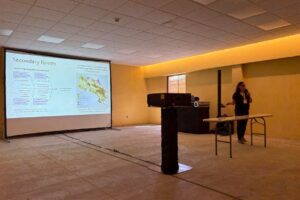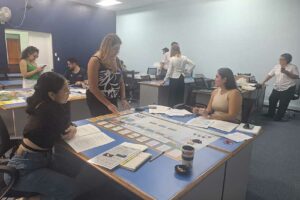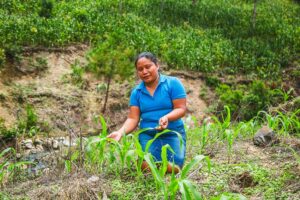CATIE and local institutions sign support for the manifesto of the National Alliance of Indigenous Women of Costa Rica
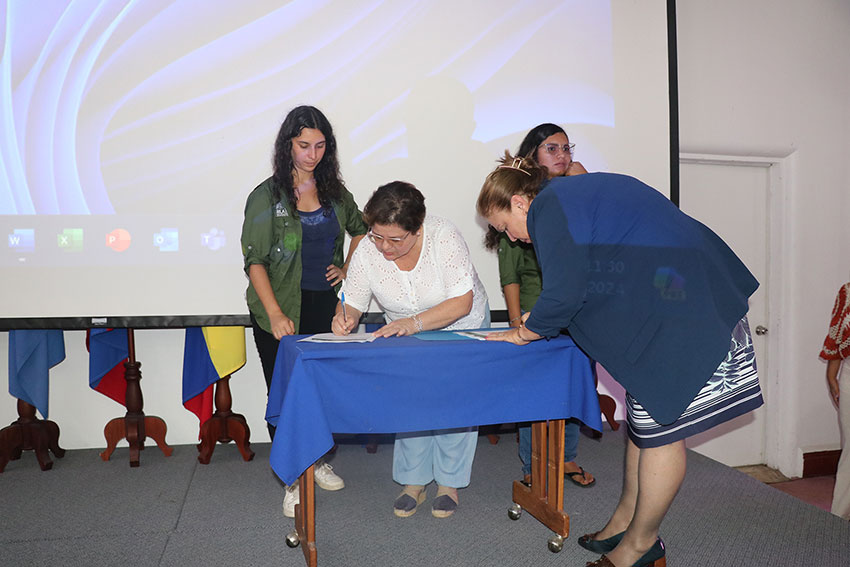
- Representatives from 7 indigenous regions of the country gathered at the meeting to create a joint work agenda.
CATIE (Tropical Agricultural Research and Higher Education Center) was the venue for the second meeting of the National Alliance of Indigenous Women of Costa Rica, where representatives from seven indigenous regions of the country gathered to consolidate a joint work agenda in favor of the recognition and empowerment of indigenous women. This work was facilitated by CATIE students from various cultures and countries. The main elements of this agenda were presented as part of the celebration of the International Day of Indigenous Women, organized by IICA, the Latin American Network of Model Forests, the Cabécar Kjalá Bata Indigenous Women's Association of Alto Pacuare, and CATIE.
The celebration, held on Thursday, September 5, brought together indigenous leaders from the Bribri, Cabécar, Maleku, Huetar, Ngäbe, Brunca, and Terraba ethnicities, as well as representatives from local and international organizations. The event took place in an atmosphere of commitment and reflection on the challenges and achievements of these communities.
The National Alliance of Indigenous Women of Costa Rica presented a manifesto that was read by Heidy Mayorga, president of the Bribri-Talamanca territory. This manifesto emphasizes the capacity and determination of indigenous women to develop themselves and advocates for inclusive participation processes at all national and international levels.
Manifesto and work agenda
The manifesto also highlighted the collective work that began in 2023 when the Cabécar Kjalá Bata Indigenous Women's Association made a formal request to the Turrialba Municipality to recognize and celebrate the International Day of Indigenous Women. This request was addressed through official document SM932023, which declared September 5 as a commemorative day in Turrialba. This celebration promotes mutual respect and the continuous recognition of the culture and rights of indigenous women in the region.
Additionally, fundamental concerns were addressed, such as the loss of language, cultural erosion, and the disinterest of new generations in ancestral history. The importance of respecting the indigenous worldview of each region and avoiding cultural generalization that groups diverse traditions under a single framework was also emphasized.
The event included the signing of an agreement to support the manifesto and a commitment to continue fostering integral, sustainable, equitable, and inclusive human development based on the cultural relevance of the various indigenous communities. Signatories of the declaration include Mairim Carmona, Director of Social Sciences at T.E.C.; Isaura Cordero, Coordinator of the Indigenous Women's Shelter; Marvin Cordero, representative of INDER Turrialba; Evelyn Quirós, Supervisor of MEP; María José Solano Fallas, Director of Turrialba Hospital; Congresswoman Rosaura Méndez; and Dr. Luis Pocasangre, Director General of CATIE.
Dr. Pocasangre gave the welcoming remarks and highlighted the importance of the event as a platform to make the voices and demands of indigenous women visible, reaffirming the institution's commitment to this cause. A video was shared in which students, graduates, and researchers talked about how their work in various fields positively impacts indigenous communities across Latin America.
"It is an honor for us to host this meeting. CATIE has always been committed to projects related to indigenous communities throughout Latin America. You were the ones who invented agriculture, made the enormous step in history, and that is still reflected in your daily lives. We know that indigenous women are the leaders of many communities," he said.
For its part, the Graduate School shared that over the past 15 years, CATIE has trained 104 students from indigenous communities in Latin America and the Caribbean. These students come from countries such as Mexico, Peru, Guatemala, Bolivia, Ecuador, Honduras, Nicaragua, Brazil, and Belize, representing at least 13 linguistic groups.
All these individuals, representing 45% women and 55% men, continue to contribute the academic and scientific knowledge provided by the institution from their workplaces and as community leaders.
Young students from CATIE's Graduate School coordinated the activity, accompanied by the Climate Action Unit, with the support of the Latin American Network of Model Forests, coordinated from this Unit.
Cultural Celebration
The agenda also included a rich display of indigenous culture through the presentation of a Ngäbe fashion show by Thalía Jiménez Quintero, followed by the emotional Jegui Ngäbe dance, presented by Ileana Obando and Manuel Palacios, who also explained its profound spiritual and cultural significance.
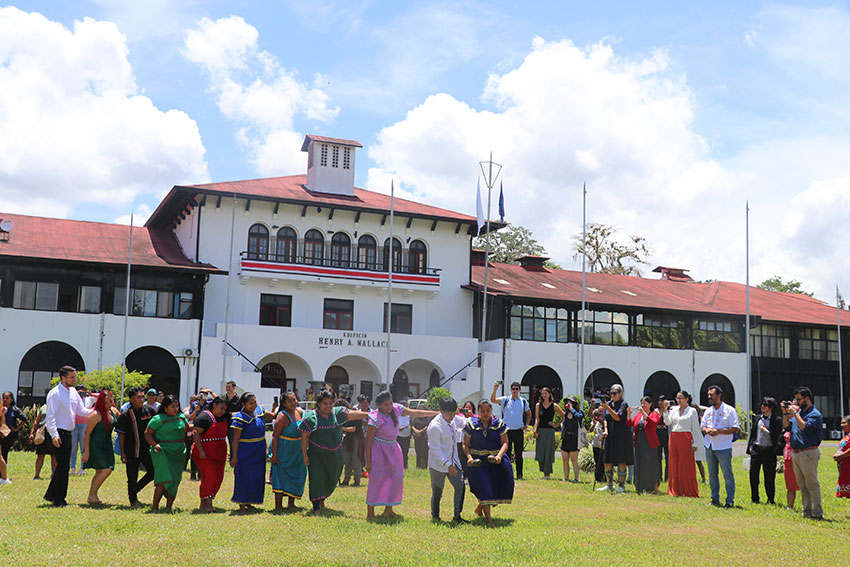
The dance provided a space for community sharing, as it was decided to hold it in the green area in front of the Henry Wallace building, where the dance was first led by women and then involved all participants.
After the various dances and dynamics, Justo Abelino Layan contributed with the performance of the Bribri dance, while Mildred Blanco closed this segment with a traditional Bribri song, learned from Dionisia Mayorga, Grandmother Clara, enriching the event with a vibrant expression of identity and tradition.
Reflection and Commitment
Isabel Obando Martínez, President of the Cabécar Kjalá Bata Indigenous Women's Association, and Ileana Obando, co-founder of the Indigenous Women's Association and coordinator of the Cacao Clan, both leaders, shared their perspectives on the significance of the activity, emphasizing the need to strengthen support networks and cooperation among indigenous women in the country.
Isabel, for her part, said, "I am very happy to be here, today is a day for us, so I welcome all these sisters from other regions," before offering a praise in her ancestral language. Ileana Obando mentioned that today was a special, historic day that will be passed down from generation to generation. "Today will be a day that we will tell our daughters about, and they will tell theirs. In a Costa Rica where indigenous women have been invisibilized and discriminated against, today we raise our voices to say we are here and want to leave a mark on each of your memories. We are not friends; we are a community of sisterhood," she said.
Isaura Cordero, from the Shelter Network, shared her vision of the importance of organization in the struggle for indigenous women's rights.
The day ended with a clear message of unity and determination to advance the defense of indigenous women's rights. The closing remarks were made by the signatories, who reaffirmed their commitment and encouraged the attendees to continue fighting for their rights.
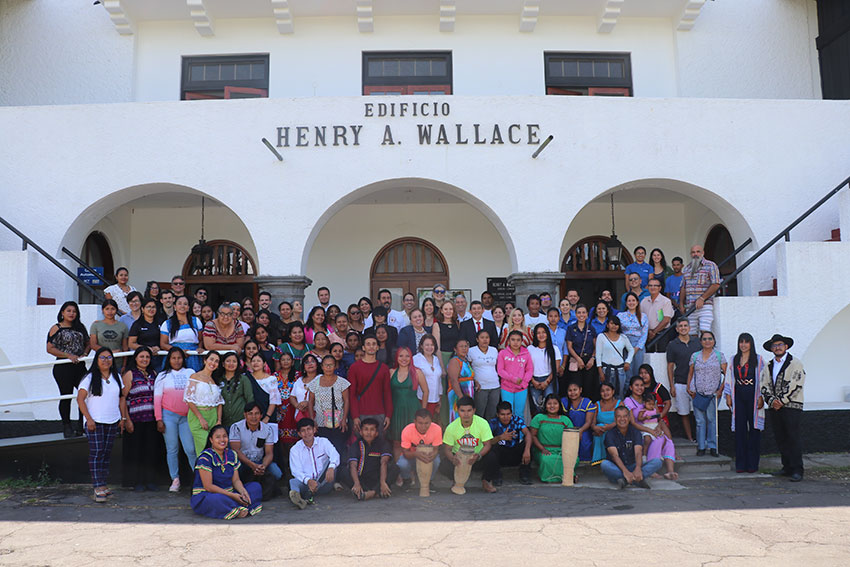
Written by:
Esteban Rodríguez Zamora
Communicator
Information Technology and Communication
CATIE
esteban.rodriguez@catie.ac.cr

